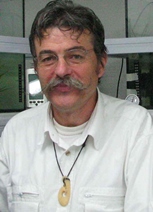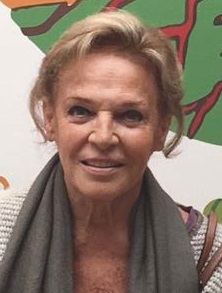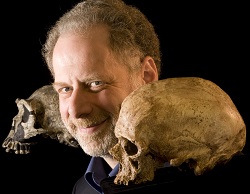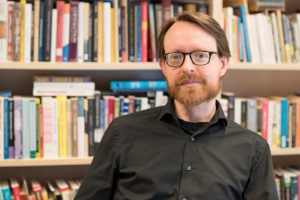
|
|
|
Scientific Organization > Plenary speakers

Etienne Danchin is Emeritus CNRS Research Director at EDB (Évolution & Diversité Biologique), Université de Toulouse, France.
Etienne Danchin, a former director of the EDB lab in Toulouse, co-founded and still co-leads the LabEx TULIP (2011-2019) unifying 4 laboratories on infra-individual processes (molecular biology, physiology, development, plant-microbe interactions) with 3 labs on supra-individual processes (behavioural ecology, population biology, community and ecosystem, evolution). He published 130 scientific papers, as well as textbooks in behavioural ecology in Portuguese, French and English. He advocates the necessity to integrate non-genetic inheritance into a synthetic theory of evolution, which he dubbed "Inclusive Evolutionary Synthesis". He more specifically focuses on the role of epigenetic inheritance in evolution and provided experimental evidence for mechanisms of cultural inheritance in Drosophila melanogaster. His ultimate scientific goal is to help promoting the Inclusive Evolutionary Synthesis generalising the mainstream Modern Synthesis of Evolution. More information.
Abstract:
Rethinking heredity to promote the Inclusive Evolutionary Synthesis. Implications for medical and human sciences
Heredity can be defined as patterns of parent-offspring resemblance. It is a major factor of evolution by natural selection or drift. Today there is a strong tendency to reduce heredity to the sole transmission of the DNA sequence. However, in the last 40 years, and particularly so since the turn of the millennium, evidence has been accruing that parent-offspring resemblance also rests on other types of information that are not encoded in the DNA sequence ie that are not encoded into genes. In effect, DNA sequence information is discovered as being far from being able to explain the whole complexity of life. Ironically this challenging of the mainstream vision resulted from the very success of that approach as it is the fantastic development of DNA sequencing technologies that revealed the limits of a sequence-only vision of life. After a few definitions, I will present two diagrams to help better understanding inheritance. I will then develop 2 general examples of non-genetic inheritance (and allude to a third one that will be developed in a talk by Sabine Nöebel) to illustrate the subtlety of the underlying mechanisms, as well as the fact that it is pervasive. I will then shortly present some of the consequences of the inclusive vision of inheritance in human sciences, mainly in medical and social sciences. I will finish by sketching a way of unifying these elements into what I call an 'Inclusive Evolutionary Synthesis' (IES) that would generalise the modern synthesis of evolution, with the ambition of encompassing all dimensions of heredity, be they genetic or non-genetic. IES thus does not contradict the modern Synthesis of evolution but rather generalizes it with the ambition to better capture all the complexity of life.

Luke Glowacki is Assistant Professor of Anthropology, Pennsylvania State University
Luke Glowacki investigates how humans self-organize in the absence of centralized decision-makers. Much of his research has focused on the emergence of collective action, especially violence and warfare. He conducts long-term fieldwork with nomadic pastoralists in the borderlands of Ethiopia and South Sudan employing ethnographic and experimental methods. He’s also keenly interested in increasing the integration among the life, social, and psychological sciences. He won the annual EHBEA New Investigator Award. More information.
Abstract:
The biocultural bases of intergroup aggression
Humans are unusual in the flexibility of our responses to outgroups, ranging from violence and warfare, to tolerance and affiliation. But why intergroup aggression develops remains a source of dispute. I argue that aggressive intergroup relationships result from interacting cultural and social dynamics including (1) systems of reward and punishment, (2) informal leadership and social structure, and (3) expectations of asymmetric gain. Cultural incentive systems for warfare are associated with greater participation in war, while the threat of peer sanctioning functions as an important catalyst for both warfare and peace. Within-group social structure has a crucial role in the emergence of intergroup violence. Using social network data on 30+ raiding parties in an East African society, I show that conflicts are led by individuals who occupy important positions in the network. Their favourable network position allows them to recruit from the entire social network, while conflict participation can then fuel prosocial attitudes towards the group. Norms promoting inequitable distribution of resources may be an important incentive for these key individuals. Individuals may initiate conflict in expectation of an asymmetric return of the spoils, even when doing is suboptimal compared to non-conflict. Together these lines of evidence underscore a key role for social structure and cultural norms in the occurrence of intergroup violence.

Claudine Junien, Emeritus Professor of Medical Genetics, Faculté de Médecine Paris-Ouest, FRANCE.
Claudine Junien created and directed the research unit U383 "Genetics, chromosome and cancer" for the Institut National de la Santé et de la recherche Médicale (INSERM) at the Necker-Enfants Malades Hospital (Paris); she founded and coordinated the Diplôme d'Etudes spécialisées national (DES) of Medical Genetics, and she launched the Francophone Society for the Developmental Origin of Health and Diseases (SF-DOHaD), which she presided over until 2015. She is currently pursuing her research at Institut National de la Recherche Agronomique INRA Jouy-en-Josas. She is a corresponding member of the Academy of Medicine (ANM).

Daniel Lieberman is the Edwin M. Lerner II Professor of Biological Sciences in the Department of Human Evolutionary Biology at Harvard University.
Daniel Lieberman’s research combines experimental biomechanics, anatomy, and physiology both in the lab and in the field, and he has conducted research in Africa for almost 30 years, and now also works in Mexico. He has published over 150 papers, many in journals such as Nature, Science, and PNAS. He is best known for his research on the evolution of the head and on the evolution of running, which he also enjoys doing himself. He has published two books, The Evolution of the Human Head (2011), and The Story of the Human Body: Evolution, Health and Disease (2013). More information.
Abstract:
“How we never evolved to exercise: energy allocation and physical activity”
This talk will apply the lens of energy allocation theory to one of the least appreciated but important human behaviors: endurance athleticism. I will review how and why the genus Homo was uniquely selected to engage in much higher levels of sustained physical activities like walking, digging and sometimes running compared to apes. I will also consider how and why these physical activities are so important for prolonging life and delaying senescence, especially in humans. And I will explore the evolutionary basis for the seeming paradox that most humans tend to avoid exercise despite its manifold health benefits.

Richard McElreath, Director of the Department of Human Behaviour, Ecology and Culture, Max Planck Institute for Evolutionary Anthropology, GERMANY
Richard McElreath's main interest is in how the evolution of social learning in humans accounts for the unusual nature of human adaptation and the extraordinary scale and variety of human societies. He uses in his research a combination of formal evolutionary models, experiments and ethnographic fieldwork. A major focus of Dr. McElreath's current research program is to develop and implement standardized methods for collecting ethnographic data across diverse fieldsites to promote cross-cultural comparisons using "big data" and to refine our understanding of human-environment interactions. More information.
Abstract:
Causal Salad in Human Evolution & Ecology
The study of human evolution and behavior is frustrated both by the incompleteness of the historical record and by the inability to conduct true experiments. Observational sciences are hard. They are made harder by a syndrome I call "causal salad"—the crowding out of explicit and logical causal models with the practice of tossing factors together in the bowl of regression until a pleasing flavor arises. Under causal salad, neither meta-analyses nor replicable results provide valid causal inferences. I'll tour some examples, from comparative methods to behavioral ecology, and try to show how theoretical models---not just statistical models---and formal causal analysis can help.

Anne Pusey is James B. Duke Professor Emerita of Evolutionary Anthropology at Duke University.
Anne Pusey is a behavioral ecologist with interests in competition, cooperation, and the evolution of social organization in animal societies. As Director of the Jane Goodall Institute Research Center at Duke, she studies chimpanzee behavior and life history, and manages the archive of data from the long-term study of the chimpanzees of Gombe National Park, Tanzania, initiated by Jane Goodall in 1960. She also studied Serengeti lions in Tanzania from 1978-1991. Anne Pusey has authored or co-authored more than 180 publications. She is the recipient of a John Simon Guggenheim fellowship, she is a fellow of the American Academy of Arts and Sciences, and a fellow of the Animal Behavior Society. More information.
Abstract:
Female social relationships in a male philopatric society: Insights from the Gombe chimpanzees
Many social mammals live in societies in which females remain in their natal social groups, surrounded by their female relatives, while males join other groups before breeding. In contrast, in chimpanzees, like some human societies, males are philopatric, remaining for life in their natal community, while most females join other communities at adolescence. Continuous observation of the chimpanzees at Gombe National Park, Tanzania, over the last 5 decades has allowed us to examine how intrasexual competition, sexual coercion, and kinship influence variation in the settlement patterns, social relationships and behavior of females.

Jean Tirole is chairman of the Jean-Jacques Laffont - Toulouse School of Economics Foundation and scientific director of the Institute for Industrial Economics.
Jean Tirole’s research covers the psychology underlying economic decision-making, industrial organization, regulation, finance, macroeconomics and banking. He has published over 200 articles in international reviews, as well as 12 scientific books. Published in French in 2016, his latest book entitled, "Economics for the Common Good", is accessible to a wide audience and under translation into a number of other languages. He is laureate of numerous international distinctions, including the 2007 CNRS gold medal and the 2014 Sveriges Riksbank prize in economic sciences in memory of Alfred Nobel. Dr. Tirole is also affiliated with MIT, where he holds a visiting position, the Ecole des Hautes Etudes en Sciences Sociales, the Institut de France and the Institute for Advanced Study in Toulouse, which he co-founded in 2011. More information.

